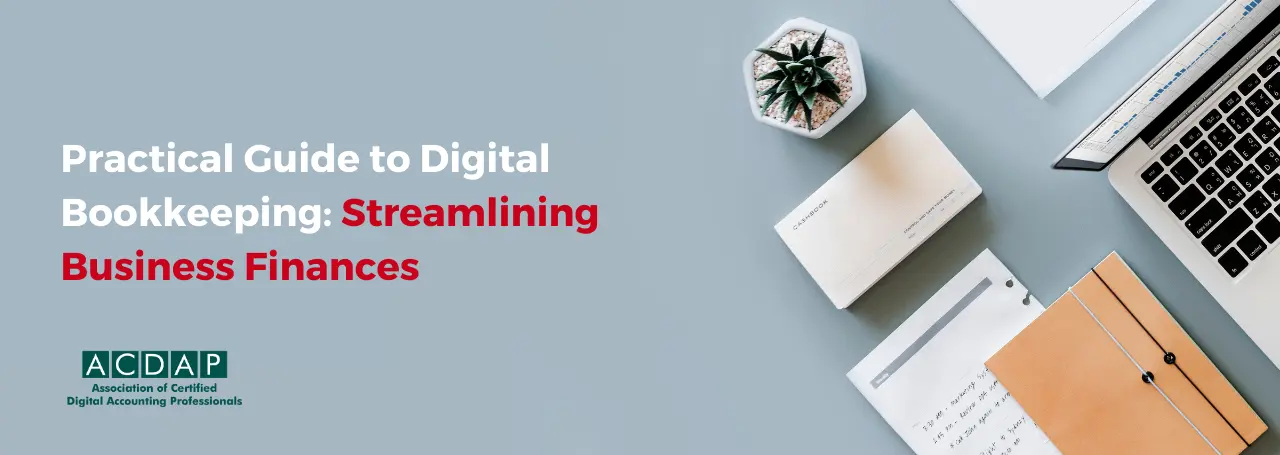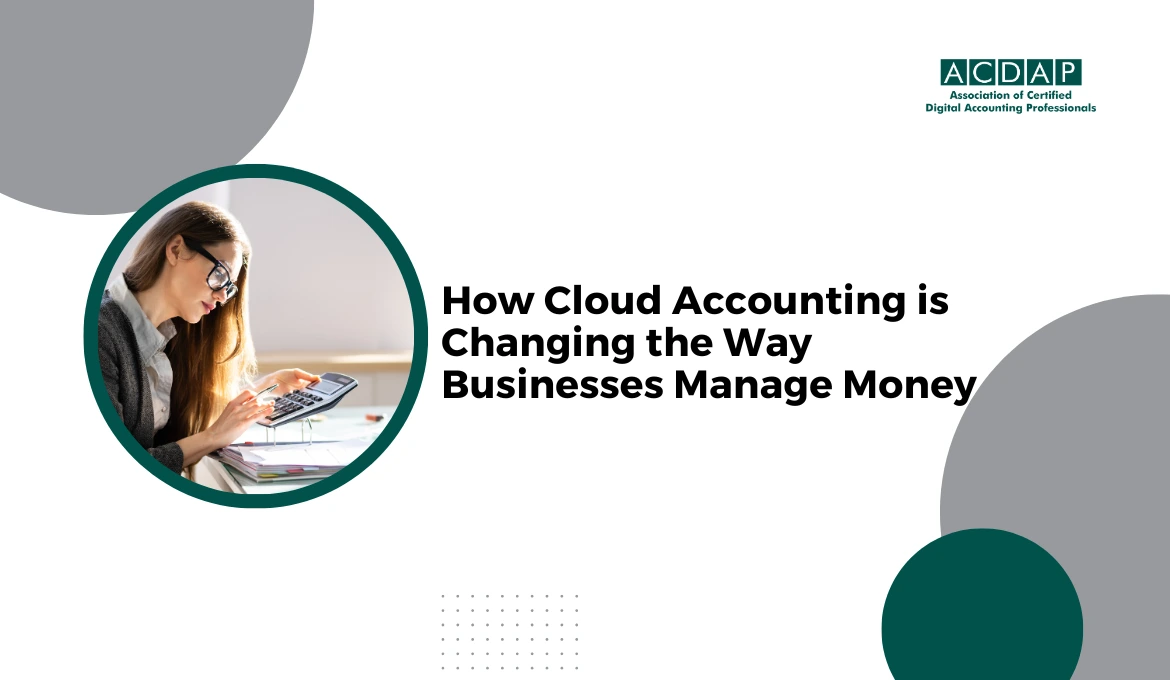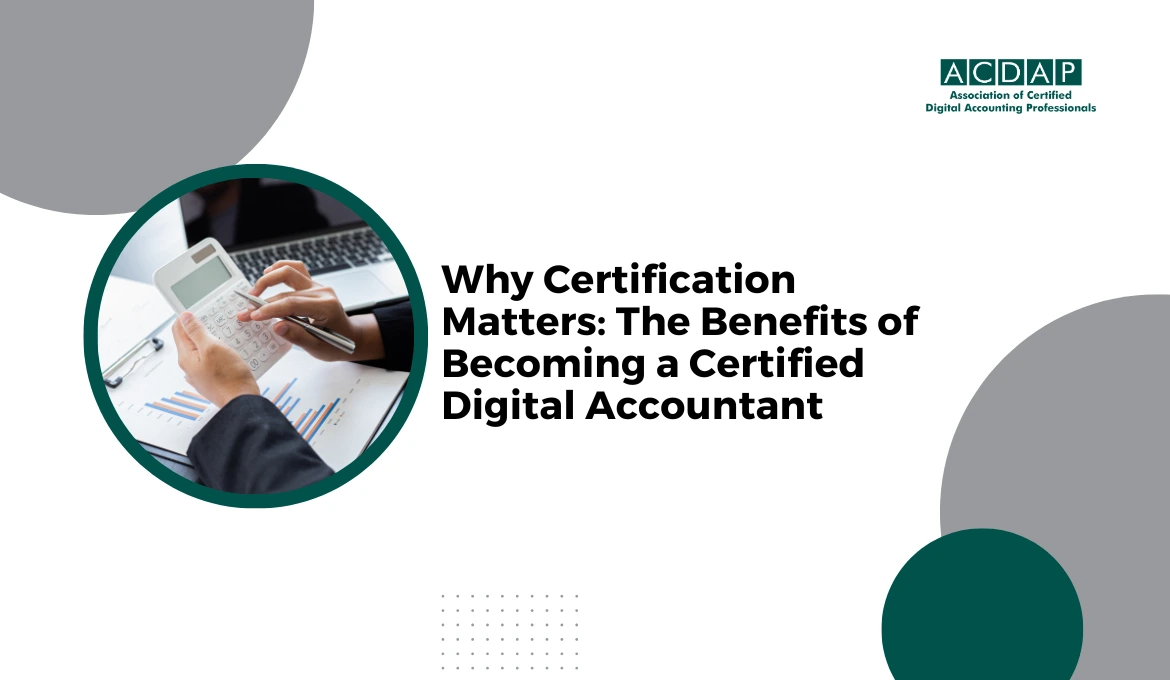Gone are the days of shoeboxes overflowing with receipts and late nights hunched over ledgers. In the era of digitalisation, embracing digital bookkeeping isn't just a tech-savvy choice for UK businesses; it's a strategic move towards streamlined finances, improved efficiency, and, ultimately, sustained growth.
This guide explains the practicalities of transitioning to digital bookkeeping, helping you navigate the journey from paper trails to cloud-based clarity.
Embrace the Power of Digitisation
Let's face it: traditional bookkeeping can be a cumbersome time-sink. Manually entering data, reconciling bank statements, and chasing invoices are tedious tasks that drain valuable resources. Digital bookkeeping eliminates these pain points, offering a plethora of benefits:
- Accuracy and Efficiency: Say goodbye to human error. Digital tools automate data entry, minimising mistakes and saving hours spent on manual calculations.
- Real-time Insights: Access your financial data anytime, anywhere. Digital platforms provide instant reports and dashboards, giving you a clear image of your financial health.
- Improved Cash Flow Management: Automated invoicing and payment reminders keep your cash flowing smoothly. Track expenses and income in real-time, making informed decisions about budgeting and investments.
- Enhanced Collaboration: Share financial data securely with your accountant or team members, fostering better communication and collaboration.
- Scalability and Security: Digital tools adapt to your business's growth. Cloud-based systems offer secure data storage and disaster recovery, ensuring your financial information is always protected.
Choosing the Right Tools for Your Digital Transformation
The digital bookkeeping landscape is brimming with tools and platforms. Selecting the right one depends on your business size, needs, and budget. Here are some key factors to consider:
- Features: Does the platform offer the functionalities you need, such as invoicing, expense tracking, payroll integration, and reporting?
- User-friendly platform: Select a simple and user-friendly interface that's easy to navigate, even for individuals with minimal accounting expertise.
- Integrations: Can the platform seamlessly integrate with your existing business tools and software?
- Cost: Compare pricing plans and features to find a solution that fits your budget. Consider free trials or demos before committing.
Popular UK-based digital bookkeeping platforms include FreeAgent, Xero, QuickBooks, KashFlow, and Sage—research reputable options and choose the one that best aligns with your specific requirements.
Implementing a Smooth Transition: From Paper to Pixels
Shifting to digital bookkeeping can be manageable. Below is a step-by-step guide to guarantee a seamless transition:
- Gather Your Records: Organise your financial documents, including receipts, invoices, and bank statements.
- Choose Your Platform: Select a digital bookkeeping tool that suits your needs and budget.
- Data Entry and Import: Manually enter any essential data from your paper records or import existing files into the platform.
- Connect Bank Accounts and Automate: Integrate your bank accounts for automatic transaction downloads and categorisation.
- Set Up Recurring Transactions: Automate recurring invoices, payments, and payroll to minimise manual tasks.
- Train Yourself and Your Team: Learn the platform's functionalities and ensure your team is comfortable using it.
Remember, transitioning to digital bookkeeping is an ongoing process. Be patient, seek help from your accountant or the platform's support team if needed, and refine your system.
Beyond Basic Bookkeeping
Digital bookkeeping isn't just about replacing paper with pixels. It's about leveraging technology to unlock new levels of efficiency and insight. As you become comfortable with the basics, consider exploring advanced features like:
- Artificial Intelligence (AI) and Machine Learning (ML): AI-powered tools can automate data entry, categorise transactions, and detect anomalies, further streamlining your workflow.
- Business Intelligence (BI) and Reporting: Generate comprehensive reports and dashboards that provide deeper financial insights, enabling data-driven decision-making.
- Payment Processing Integration: Accept online payments seamlessly through your bookkeeping platform, improving customer experience and cash flow.
By continuously embracing innovation and automation, you can transform your digital bookkeeping system into a powerful growth engine for your UK business.
Conclusion
Moving to digital bookkeeping is an investment in your business's future. It frees you from tedious tasks, gives you access to real-time financial data, and enables informed decision-making. Adopting the right tools and strategies can simplify your finances, unlock growth opportunities, and gain financial clarity in the digital era. So, say goodbye to shoeboxes, welcome the cloud, and witness your business reach new heights!


























